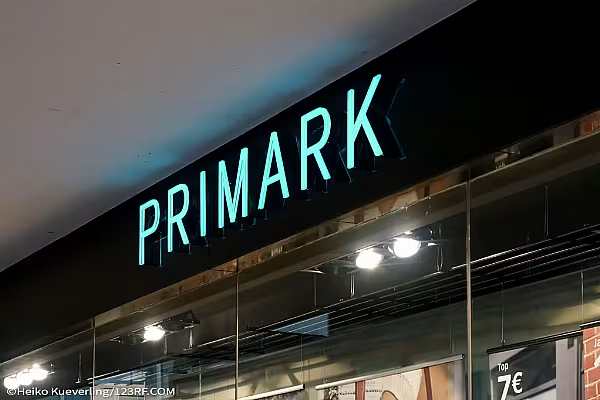Associated British Foods has said in a trading update that it expects operating profit in both its Primark and food businesses to 'exceed expectations', although it added that fourth quarter trading 'varied considerably' across its Primark estate.
Here's how leading industry analysts viewed its performance.
Russ Mould, AJ Bell
“Even though lockdown measures are now (hopefully) a thing of the past, Associated British Foods-owned Primark still saw volatile trading over the summer because of people being told to self-isolate. There remains a real risk of further disruption if there is an autumn flare-up of Covid as more people interact in society and the Delta variant still rages.
“Primark has a simple business model – sell a wide range of clothes and do so at the lowest price possible. Very few people leave its stores with only one item in their shopping bag as there is considerable temptation to keep popping items in the basket as everything is so cheap.
“That puts pressure on the company to keep its stores as fully stocked as possible to take advantage of the typical customer’s shopping habits. Primark has flagged that supply chain issues are likely to hit its autumn/winter inventory levels, so the company will no doubt have to do some clever rearranging of its store layouts to make them look as full as normal.
“Sustaining the store rollout is very important when you consider that Primark doesn’t sell its products online. It’s always said that the economics of the web don’t add up when its product price tags are so cheap. On that front, it is interesting to see the company announce plans to launch a new website but there is no sign that this will be a transactional one. Historically it has used the online channel just to showcase products and the new plan seems to be centred on letting customers see which products are available on a store-by-store basis.
Cathal Kenny and Roland French, Davy
"ABF’s pre-close statement points to a better-than-expected performance through Q4, driven by higher profits at Primark and non-retail businesses. Primark’s Q4 like-for-like (LFL) revenues were lower than expected (-17% versus our -12% assumption), although the monthly cadence and exit rate provide comfort on FY 2022 revenue assumptions.
"Strong cost control will prompt Primark margins to exceed 10% in H2, with the outlook for supply chain and inflation headwinds “broadly mitigated” by the weaker dollar. The statement evidences strong operating control, although FY 2022 margin commentary may require further distillation."
Anubhav Malhotra, Adam Tomlinson and Wayne Brown, Liberum
"AB Foods reported a strong 4Q’21 profit performance at both its food and Primark businesses, leading to FY’21E earnings upgrade. However, Primark 4Q’21 sales were below expectations, down -17% LfL vs. two years ago, as the 'Pingdemic', trading restrictions, and lack of tourism continued to impact footfall, although there are signs of improvements as self-isolation measures were eased.
"Like-for-like growth in the U.S., up 3% over two years ago, though suggests that the proposition still resonates well with customers when the public health measures have been lifted completely. Primark’s profitability has improved further with 2H’21 operating margins exceeding 10% despite the LfL sales decline in 2H. This should allow the company more room to re-invest in new stores, store relocations and in an increased online presence."
Darren Shirley, Shore Capital
"We place our present forecasts under positive review post today’s update, though expect to be putting through modest upgrades to our FY21 EPS forecast of 68.8p. We also expect to be tweaking our FY22 EPS forecast of 141p to reflect the potentially higher profit base, stronger sugar delivery and the impact of what appear to be higher Primark guidance offsetting a modest reduction in our new space expectation from 0.7m sq. ft to 0.5m sq.ft.
"Commendably, and importantly, ABF remains a highly cash generative Group, with net cash balances at September of £1.9bn; management has set out a preferred leverage policy preferring leverage (on a IFRS16 basis) to be well below 1.5x EBITDA, albeit in exceptional circumstance it is prepared to see leverage above that for a short period of time.
"ABF stock is trading on a FY22 PER of 14.0x and an EV/EBITDA multiple of 6.6x, valuations we view as far too low for a company with leading market positions and brands across its food activities and a still highly potent and immature Primark format. We also highlight an immensely strong balance sheet with very high cash balances."
Louise Deglise-Favre, GlobalData
“FY2020/21 has been another difficult year for Primark, with total sales estimated to be down 28% against FY2018/19 (£5.6bn versus £7.8bn), due in part to a poor Q4 where like-for-like (l-f-l) sales are expected to have been 17% lower than FY2018/19. The retailer has blamed the UK’s 'pingdemic' for its disappointing results over the summer as it suppressed high street footfall, on which Primark remains critically dependent as it does not have a transactional website.
"This is a factor that has hugely cost the retailer this year, with the online penetration for clothing & footwear forecast to remain high at 47.7% in 2021. In the next financial year, Primark is planning to launch a revamped, yet still non-transactional website and expand its digital marketing – a strategy at odds with the changing consumer habits of online purchasing accelerated by the pandemic. Its lack of transactional website could remain a major hinderance to Primark’s performance."
© 2021 European Supermarket Magazine – your source for the latest A-Brands news. Article by Stephen Wynne-Jones. Click subscribe to sign up to ESM: European Supermarket Magazine.














